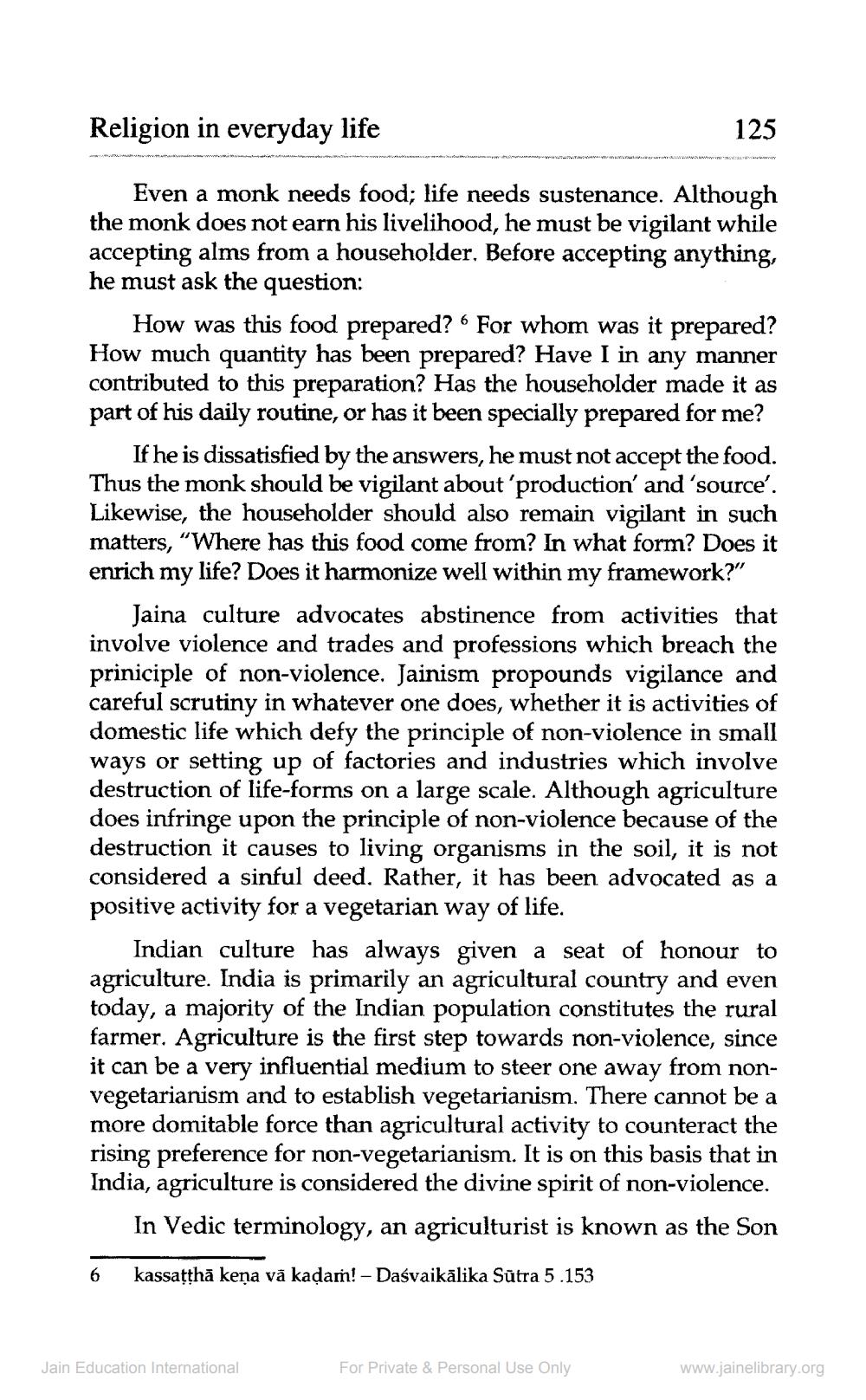________________
Religion in everyday life
125
Even a monk needs food; life needs sustenance. Although the monk does not earn his livelihood, he must be vigilant while accepting alms from a householder, Before accepting anything, he must ask the question:
How was this food prepared? For whom was it prepared? How much quantity has been prepared? Have I in any manner contributed to this preparation? Has the householder made it as part of his daily routine, or has it been specially prepared for me?
If he is dissatisfied by the answers, he must not accept the food. Thus the monk should be vigilant about production' and 'source'. Likewise, the householder should also remain vigilant in such matters, "Where has this food come from? In what form? Does it enrich my life? Does it harmonize well within my framework?"
Jaina culture advocates abstinence from activities that involve violence and trades and professions which breach the priniciple of non-violence. Jainism propounds vigilance and careful scrutiny in whatever one does, whether it is activities of domestic life which defy the principle of non-violence in small ways or setting up of factories and industries which involve destruction of life-forms on a large scale. Although agriculture does infringe upon the principle of non-violence because of the destruction it causes to living organisms in the soil, it is not considered a sinful deed. Rather, it has been advocated as a positive activity for a vegetarian way of life.
Indian culture has always given a seat of honour to agriculture. India is primarily an agricultural country and even today, a majority of the Indian population constitutes the rural farmer. Agriculture is the first step towards non-violence, since it can be a very influential medium to steer one away from nonvegetarianism and to establish vegetarianism. There cannot be a more domitable force than agricultural activity to counteract the rising preference for non-vegetarianism. It is on this basis that in India, agriculture is considered the divine spirit of non-violence.
In Vedic terminology, an agriculturist is known as the Son 6 kassatthā keņa vã kadam! – Daśvaikālika Sūtra 5.153
Jain Education International
For Private & Personal Use Only
www.jainelibrary.org




